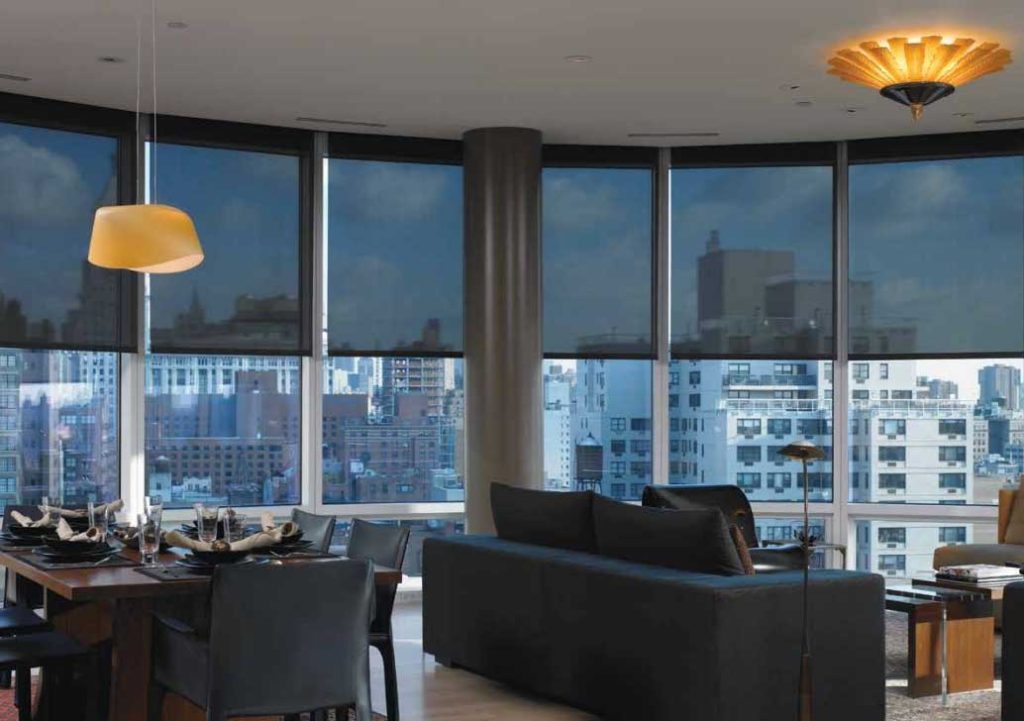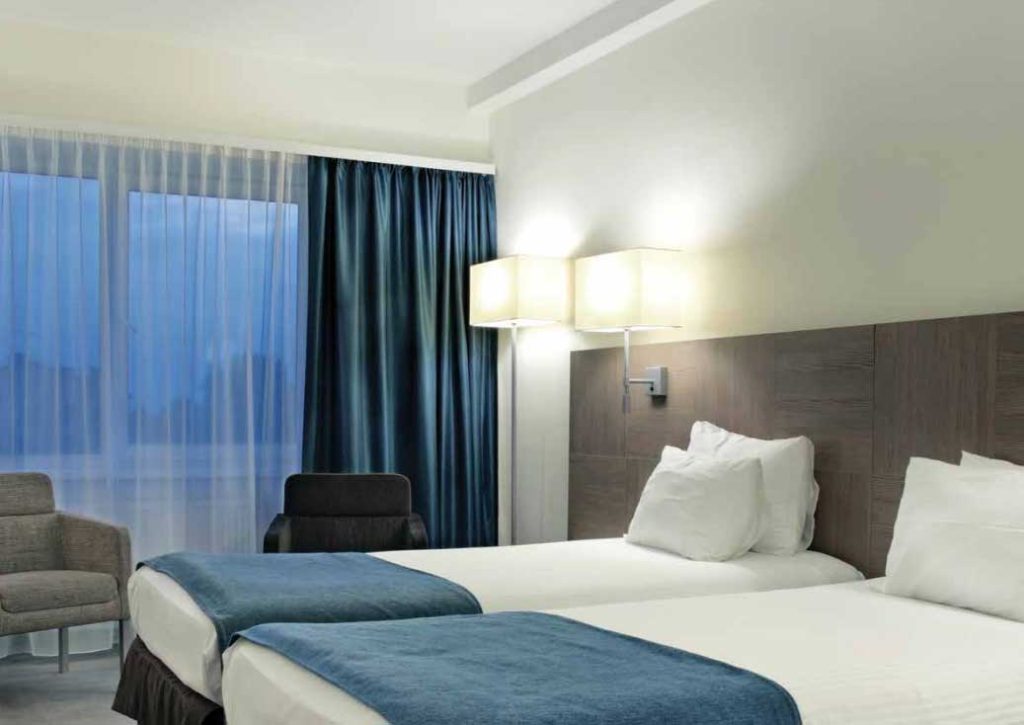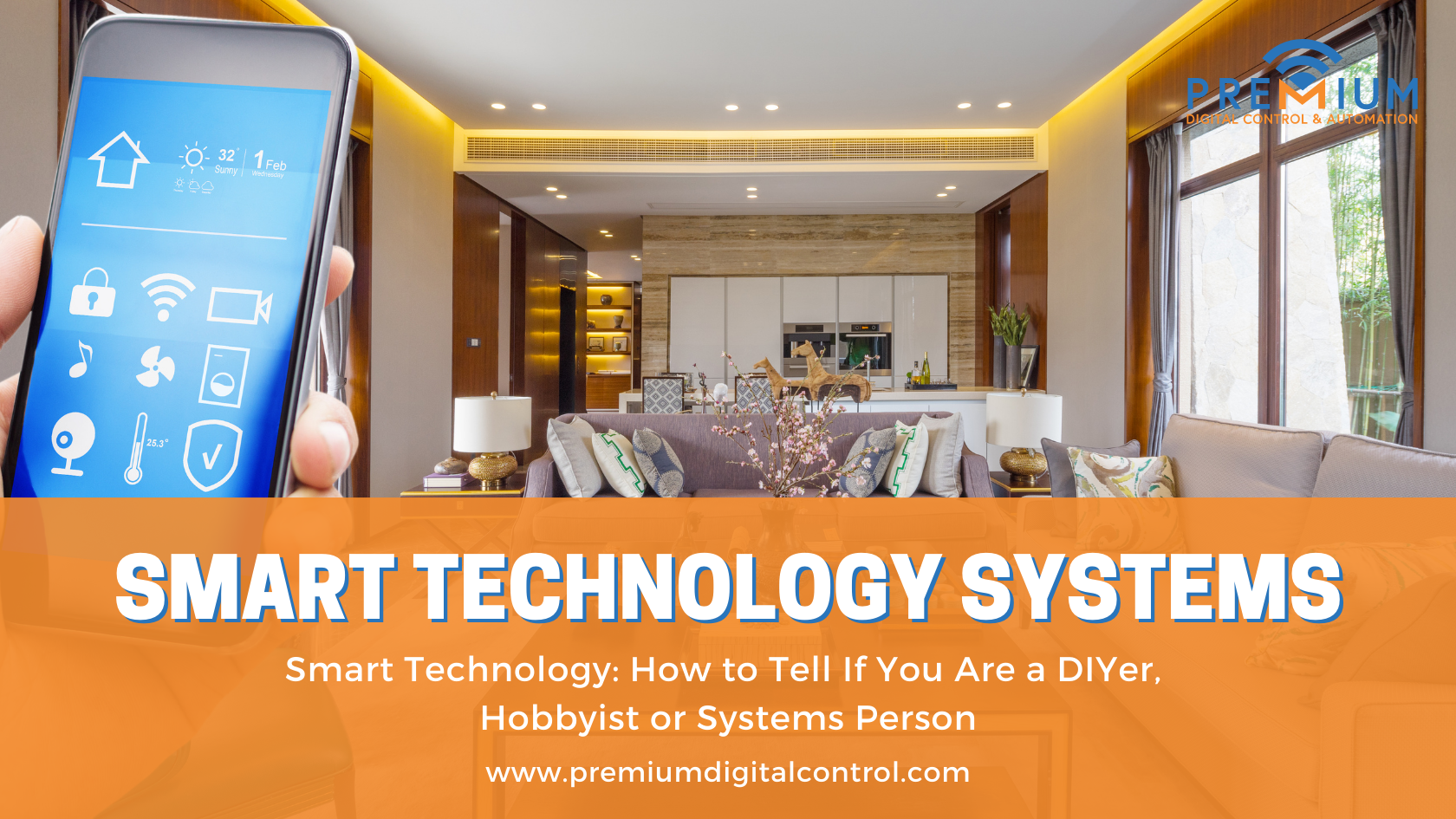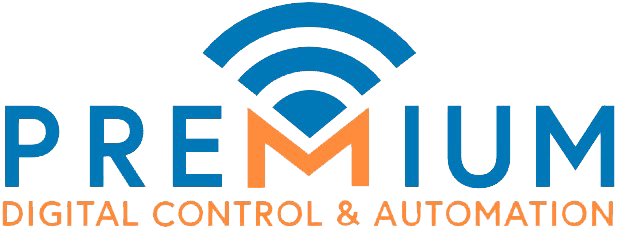
What smart technology will fit your needs? A building, office, restaurant or a personal property will have different customization needs. To clearly differentiate here, there are 3 main types of smart technology enthusiasts: DIYers, hobbyists and systems-oriented customers.
A DIYer (do-it-yourself person) is mostly a domicile-centric tinkerer who likes to experiment with their setups and IoTs (Internet of Things) devices, while a hobbyist doesn’t really want to install anything but enjoy his smart device right away. A systems-oriented customer, though, prefers having an almost one-and-done approach to integrated technology systems because they relish the total experience more – they’re Experience Buffs of the Tech Kind — systems-oriented, if you will.
A DIYer and hobbyist may focus first on exploring the gadgets for a room, because he enjoys the process, whereas a systems-oriented person likes to experience the benefits of automation right away, in his entire space.
One could say the DIYer and hobbyist prefer the means to the end, while a systems-oriented customer seeks the end to the means. It’s not wrong to say, though, that a DIYer could ultimately aspire to become a technician when they learn more about the technology.
DIYers vs systems thinker
Both DIYers and systems-oriented customers have the same goal, though: To enjoy their automated space with technology for the way it can provide them security, comfort, convenience and of course, entertainment. The hobbyist is still caught in between while the nondescript customer is content with a Ring doorbell and a basic thermostat, perhaps with a motion-sensor lighting in and around his house.
But to make it even clearer how to differentiate yourself from others, here are some products and processes that should give you away. It’s how we find your user type based on the smart technology you need.

Property owners need expert guidance
Inquire first with smart technology companies like Premium Digital Control & Automation before going directly to an architect, interior designer, general contractor or even electrician about building them a customized smart automation system.
Premium Digital Control & Automation, for instance, works with South Florida’s top architects, interior designers and general contractors when it comes to building and designing with smart technology in mind.
Of course, you could ask yourself, how hard can automation be to do for architects or interior designers? Why not ask them directly? Each profession has his or her own specialty. Smart technology technicians complete training courses and certifications, and require wiring foundations, from low voltage cables to category 5 or 6 for network connection to power supply issues. If you’re a DIYer, it’s ok with you to spend time learning how automation works, but for other people with no time, it’s not going to be easy.
Personal property owners need guidance as they are in between trying to be DIYers but with no time and experience to custom-build their own smart space. It behooves them to know what they want from an expert technician, so they can better assess what needs to be done. This way, they can focus on the total immersion of automation rather than having the stress of building it themselves. To understand how complex the work is, it’s good to understand what technicians undergo to make it as a proper installer here.
Systems-oriented for buildings
If you’re thinking of an entire building, it’s a clear giveaway that you are already systems oriented. If you’re an expert smart technology specialist or engineer, you’re thinking of IoT sensors, an analytics software, user interface design, structured cabling, and connectivity before you’re even thinking of connecting them to devices. You’re thinking this way because you know any device should run if you have all these in mind from the beginning.
For the uninitiated, here’s a guide to systems within systems – or subsystems, with devices upon devices connected to each other. The possibilities are endless when there’s connectivity, so for those unfamiliar with systems or subsystems, how you may need them is how you plan to integrate the following for your building, office or store:
- Door open and close sensors
- Occupancy counters
- Smart lighting systems
- HVAC and air quality controls
- Temperature and humidity controls

Systems-oriented for tenants
Narrowing down integration concepts from buildings to office rooms for tenants, a systems-oriented devotee would look at it from the standpoint of how tenants would stand to benefit if they offer and install a few of the following:
- Smart TVs for video conferencing
- Projectors
- Door locks
- Automated shading
- Human-centric lighting
Both of you benefit in the long haul – in terms of long-term maintenance and savings.
- Reduced energy bills
With workplace automation, temperatures can be automatically adjusted if no one is around. It’s the same thing when you have smart lighting
- Increased property value
Investing in your building will increase its value
- Save on labor costs
Sensors are less damaging and can help your maintenance costs go down.
Hotels need these automated features and systems
Many hotels are embracing smart technology earlier, but others need not be left behind. If the concern is privacy, every hotel needs CCTV cameras in common areas for the safety of their guests anyway. Overall, having smart lighting and automated window treatments should be fine. Hotels can also offer their guests access to an app if they have it, to make them feel in control.
A study by YouGov finds that Americans are most willing to use their phones to access hotel and area maps (63%), book a reservation at an on-site restaurant (58%) and book cruises and other activities (48%).
For those who are still in the fence, automation continues to evolve for the better and new technologies are always coming out that will make it harder for hotels to ignore. Already, most of the biggest hotels have personalized connected rooms like the Hilton, launched in 2017. Guests there can log in on their own Netflix or IHeart Radio accounts.
If you’re the hotel guest looking to have your favorite hotel updated with smart technology, suggesting it to the hotel concierge or manager should make them address it to management which will then be taken up by their engineers who should contact a smart technology integration company like Premium Digital Control – not architects or construction planners.
Takeaway
In most cases, it’s not going to be easy to do things on your own, if you factor in the time you need to integrate a whole slew of devices. You also have to consider that one gadget you fancy can become a dozen gadgets or more before you even realize it – and how do you know if they’re going to integrate with each other, or if they’re well structured from the get-go?
And if your end goal is full automation, you’ll need that structure – an ecosystem with optimized maintenance, energy efficiency, internet reliability, security and overall personalization.
So if you’re a consumer and you’re just started on smart technology, ask yourself before you buy that home assistant or smart bulb in one room, where are you going with your “hobby”? If it’s just an impulse buy, it’s understandable. But even just buying two devices can lead you to exploring a more integrated system later (think controlling all lights in your whole space). And since there’s a lot of information to digest, which will take up too much of your time, it’s better to just get the expert guidance you need right away.
How do you know if you’ve graduated from being a hobbyist and you’re ready for an integrated system? Ask yourself, did you leave the lights on all day and night when you left for a vacation? Do you have overactive air conditioning? Did you leave electronics plugged in when not in use? Answering these questions can help you think more in terms of systems that will benefit you and your space for a long period of time.
If you’re a hotel manager or building superintendent thinking of smart technology systems, the questions you ask yourself will slightly differ on a larger scale. The thing to know is by having integrated systems, you’ll realize you can have more control when everything is properly set up compared to the unpredictability of having too many gadgets that don’t even talk to each other.
Being systems oriented pays off eventually. Best of all, you’ll see the benefits when you’re not even near your space and you realize that you can still have control over your automated space. You can do that with an integrated system.


